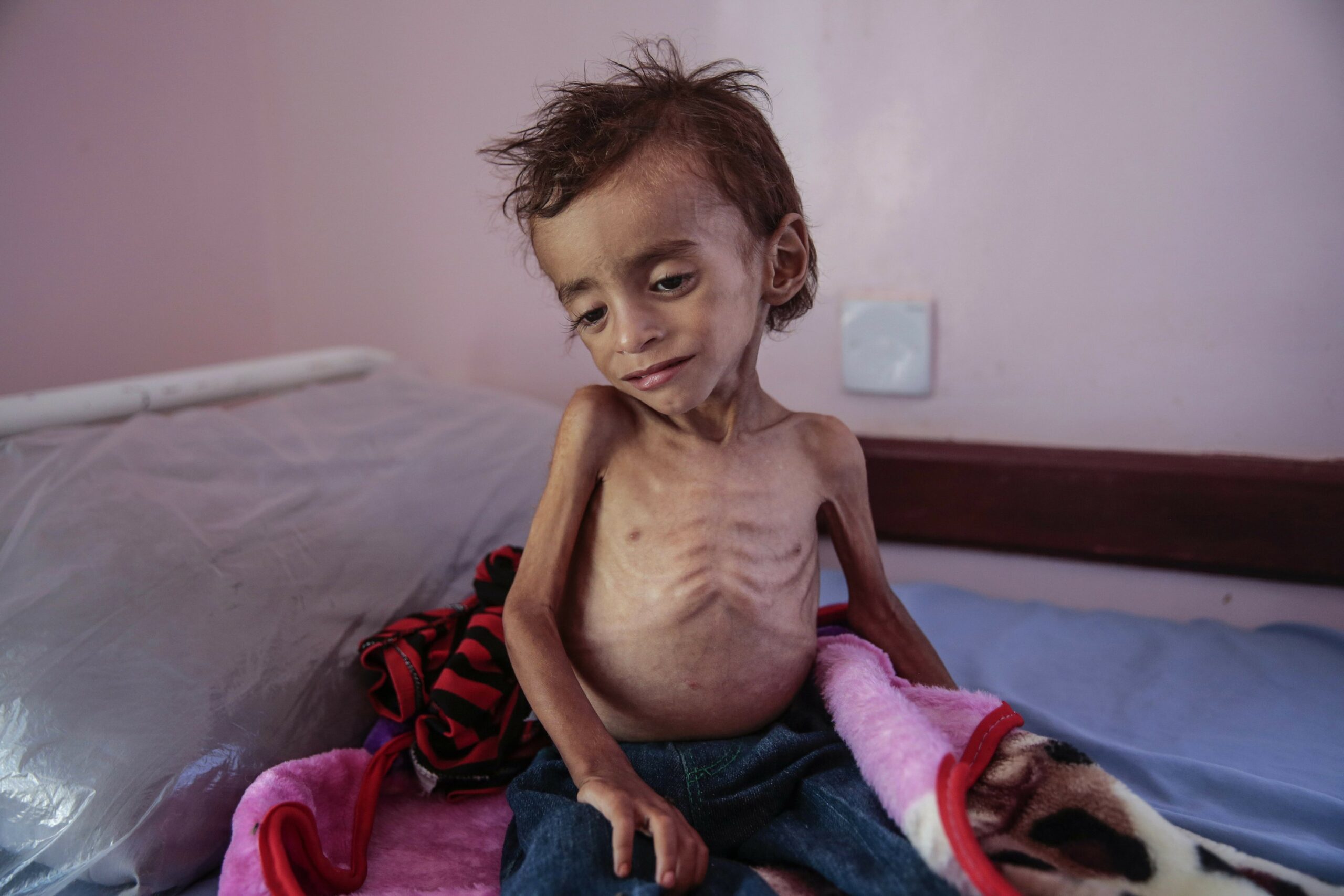For those among us whose experience of life’s ups and downs do not extend beyond a transition from sippy cups of lukewarm milk to double shots of mocha, it is a given that everybody finds a steaming cup of tea or coffee along with a fair bite of something wholesome and delicious waiting when rising every morning, groggy and bleary-eyed. Sadly, however, the lot of the people with whom café mocha originated is far removed from this illusion.
Mocha gets its name from the Yemeni Red Sea port of Mocha (also known as al-Makha), the first to export this coffee with Yemenis being the first to harvest and consume the beverage on a wide scale.
Nowadays, chocolate flavoured delicacies seem to be a phantasm of the past as Yemen struggles with other things. Some 20 million Yemenis wake up hungry every morning and carry starvation on their backs to premature death.
Yeminis have seen war up-close, yet it is the red demarcation on the measuring tape wrapped around a child’s upper arm that hits them harder than hostile firepower.
Severe acute malnutrition is a veritable death knell for most children under 5 years of age, with moderate acute malnutrition being a beacon of hope that can keep death at bay for a little while aided by the fortified peanut butter paste provided by the World Food Programme.
Yemen has long battled with some of the highest malnutrition rates in the world. Humanitarian interventions to provide emergency food assistance and treat and prevent malnutrition have prevented an even more severe deterioration. But in 2020, these hard-won gains were lost. Together, the escalating conflict and economic decline and the overwhelming impact of the COVID-19 global pandemic have pushed an already exhausted population to the brink.
Many aid projects including emergency food assistance and WASH services have been disrupted by funding shortfalls. Malnutrition treatment programmes are also at risk if additional funds are not received soon.
A rebel movement known as the Houthis captured the nation’s capital in 2014 and ousted its government. A coalition led by Saudi Arabia and the United Arab Emirates (UAE) intervened, ostensibly to restore the deposed government. Their bombing campaigns degraded Yemen’s fragile economy and destroyed much of its infrastructure. The country’s currency collapsed, public employees stopped receiving their pay, and food prices skyrocketed.
The Saudi-Emirati coalition effectively shut down the Red Sea port at Hodeida which is the main entry point for food imports and other humanitarian supplies. By the end of 2018, Yemen was heavily dependent on humanitarian food aid and facing starvation.
It has been downhill ever since, developing into what has been called the worst human-made disaster in the history of the world.
The UN Security Council just passed a resolution in 2018 to condemn the use of food insecurity and starvation as a tactic of war. This is the first time the Council has addressed the issue, acknowl- edging a threat to the lives of tens of millions of people.
Today, half of all Yemeni children are stunted. Malnutrition impairs growth and cognitive development. The circumstances that have led to a whole generation of Yeminis with severe physical and mental deformities are not only inhumane but monstrous.
The fact that it was completely acceptable for some to starve out a country or people within a country in case of civil war is extremely disturbing. This is exactly the kind of temperament that has allowed genocides, holocausts and fascism to not only prevail but flourish under the veneer of sophisticated global politics.
The National Geographic accused the world of leaving Yemen to die, and while the accusation may be well founded, it is no solution. If finger-pointing could solve issues the sovereign charismatic of the Land of the Pure would have singlehandedly stabilized the econo- my and achieved world peace in time for his morning jog, without which he is reportedly putting on weight.
The consequentialism here suggests that creating a hue and cry and thumping our chests or desks within the assemblies locally or globally must lead to the necessary change.
If a country on the brink of famine can trigger moralization from every bully pulpit in the world but is not enough to precipitate coordinated global action to right the situation, then that in itself is more alarming than the ongoing pandemic.










